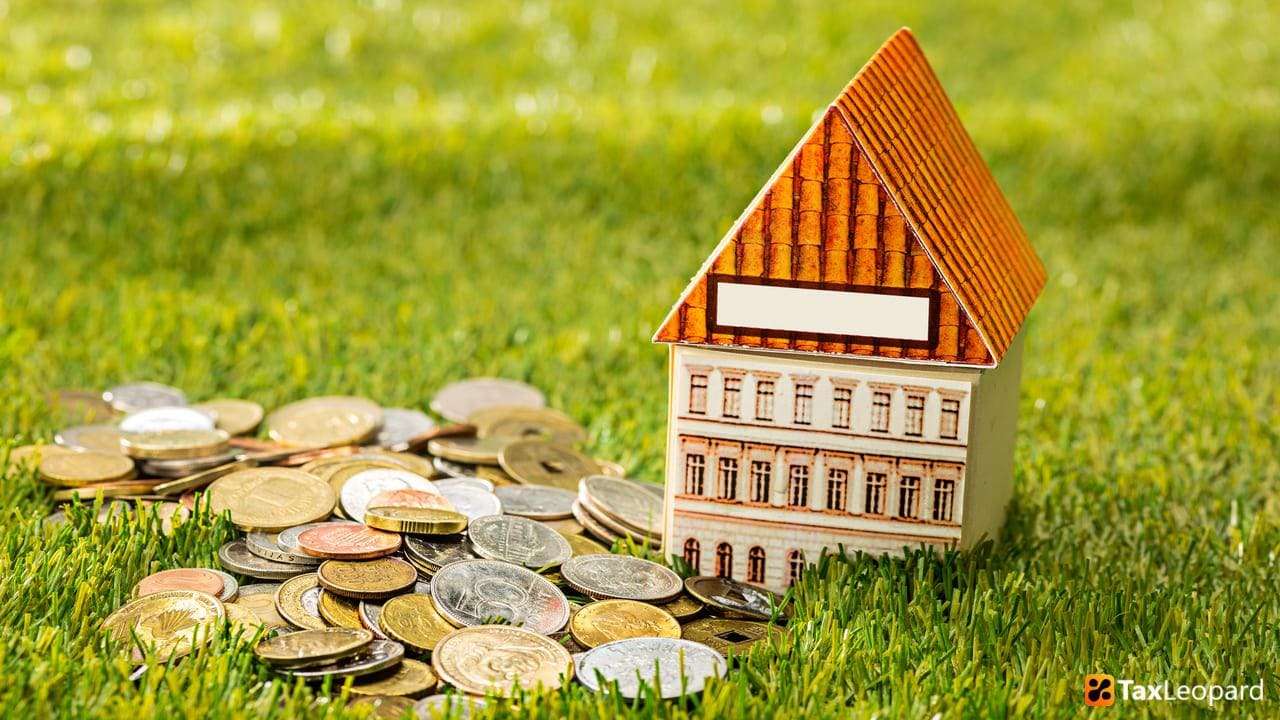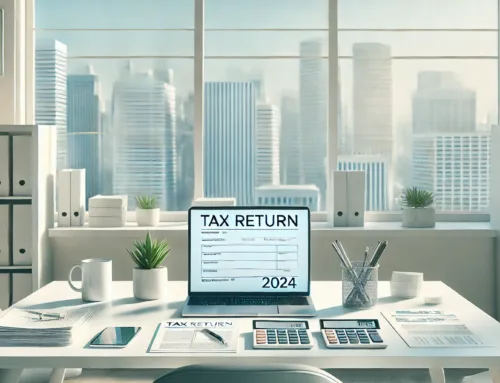Land tax Victoria is a maze for property owners. The landscape is ever-changing, with new rates and regulations introduced each year. The complexities and challenges faced by landowners in understanding their obligations.
In 2024, significant changes to land tax rates and surcharges are set to impact property owners across Victoria.
This article offers a complete guide to land tax Victoria 2024. It provides insights into tax rates, exemptions, and strategies for property owners to navigate their tax liabilities effectively.
What is Land Tax?
Land tax is an annual tax levied on the taxable land value owned in Victoria. It is calculated using rates determined by the Valuer-General Victoria. Property owners with land exceeding a certain threshold must pay land tax. The tax is assessed on the total value of all the land owned, excluding exempt properties like primary residences.
Changes to land tax, such as the windfall gains tax and vacant residential land tax, can impact tax liability. Understanding land tax rates and obligations is crucial for managing property tax bills and avoiding penalties.
Land Tax Victoria: Rates for 2024
| Total taxable value of landholdings | Rate |
|---|---|
| Less than $50,000 | Nil |
| $50,000 to < $100,000 | $500 |
| $100,000 to < $300,000 | $975 |
| $300,000 to < $600,000 | $1,350 plus 0.3% of the amount > $300,000 |
| $600,000 to < $1,000,000 | $2,250 plus 0.6% of the amount > $600,000 |
| $1,000,000 to < $1,800,000 | $4,650 plus 0.9% of the amount > $1,000,000 |
| $1,800,000 to < $3,000,000 | $11,850 plus 1.65% of the amount > $1,800,000 |
| $3,000,000 and over | $31,650 plus 2.65% of the amount > $3,000,000 |
Trust Rates for 2024:
| Total taxable value of landholdings | Rate |
|---|---|
| Less than $25,000 | Nil |
| $25,000 to < $50,000 | $82 plus 0.375% of the amount > $25,000 |
| $50,000 to < $100,000 | $676 plus 0.375% of the amount > $50,000 |
| $100,000 to < $250,000 | $1,338 plus 0.375% of the amount > $100,000 |
| $250,000 to < $600,000 | $1,901 plus 0.675% of the amount > $250,000 |
| $600,000 to < $1,000,000 | $4,263 plus 0.975% of the amount > $600,000 |
| $1,000,000 to < $1,800,000 | $8,163 plus 1.275% of the amount > $1,000,000 |
| $1,800,000 to < $3,000,000 | $18,363 plus 1.1072% of the amount > $1,800,000 |
| $3,000,000 and over | $31,650 plus 2.65% of the amount > $3,000,000 |
Absentee owner surcharge (AOS):
From 1 January 2024, the absentee owner surcharge rate will double from 2% to 4%, with the minimum property value threshold dropping from $300,000 to $50,000 for general land tax rates, except for trusts where it remains unchanged
Tax-free Threshold
In Victoria, the land tax-free threshold is the value of the land below which no tax is payable. For the 2024 land tax year, this threshold is set at a specific amount determined by the State Revenue Office of Victoria. Properties with a total taxable land value below this threshold are exempt from land tax. It’s important to note that the threshold applies to the total value of all the land you own in Victoria, not per property.
Calculating Your Land Tax
Calculating land tax in Victoria involves a progressive rate structure based on the total taxable value of all the properties you own. The tax amount increases as the cumulative value of your property rises. It’s calculated as a percentage of the property’s value above the tax-free threshold. For example, if your property is valued at a certain amount above the threshold, you pay a base amount plus an additional percentage for the value exceeding the threshold. This calculation ensures a fair distribution of the tax burden, with higher-value property owners paying more.
Examples:
For instance, let’s say the tax-free threshold is $250,000. If you own a property worth $500,000, you will only be taxed on the amount exceeding the threshold ($250,000). If the tax rate for this bracket is, hypothetically, 1%, your land tax would be 1% of $250,000, equating to $2,500. Understanding this calculation example is crucial for property owners to estimate their tax obligations and plan their finances accordingly.
Land Tax Exemptions
Land tax exemptions in Victoria can be complex. The State Revenue Office of Victoria provides guidelines for various exemptions. Key exemptions include:
- Principal Place of Residence: Your primary home is generally exempt from land tax.
- Primary Production Land: Farms and other primary production lands in rural areas are usually exempt.
- Charitable Trusts: Land owned by charitable organizations often qualifies for a land tax exemption.
- Retirement Villages: Units within accredited retirement villages are usually land tax-exempt.
Exemptions are determined based on the use of the land and the owner’s eligibility. For instance, land used for commercial or industrial purposes may not qualify for exemptions. Landowners need to understand their tax obligations and seek professional advice if unsure.
How to Pay Your Land Tax Assessment?
To pay your land tax assessment in Victoria, follow these steps:
- Review your land tax assessment notice sent by the State Revenue Office.
- Choose a payment method: online, BPAY, mail, or in person at a participating post office.
- Pay by the due date to avoid interest and penalty tax. If you’re unable to pay in full, contact the State Revenue Office to discuss payment arrangements.
Why My Land Tax Assessment Rates High?
Your land tax assessment may be high due to several factors:
- The combined taxable value of your land has increased, pushing you over the tax-free threshold.
- Changes to land tax rates or thresholds in the 2024 land tax year.
- Removal of exemptions or concessions you previously qualified for.
- Incorrect property valuation. If you believe the capital-improved value of your land is incorrect, you can object to the assessment through the State Revenue Office.
Conclusion
Land tax Victoria involves understanding its current rates, exemptions, and the implications of recent legislative changes for 2024. Knowledge of these aspects is crucial for property owners and investors, helping in informed decision-making and ensuring compliance. As the landscape of property taxes evolves, staying informed and adaptable is key. But how ready are you to adapt to potential changes in Victoria’s land tax in the future?
FAQs
1. When is land tax due for payment in Victoria? Land tax is generally due on 31 March each year.
2. What are the penalties for not declaring absentee owner status? Penalties range from 5% for voluntary declaration before an investigation starts, to up to 90% if it’s believed that you intentionally disregarded the law and hindered the investigation
3. How can I calculate my land tax in Victoria?
Land tax is calculated on a sliding scale based on the total taxable value of your landholdings. You can use the land tax calculator provided by the State Revenue Office of Victoria to estimate your tax.
4. What are the new land tax exemptions introduced in 2024?
New exemptions include land owned by a family member and used as the home of an individual eligible to be a beneficiary of a Special Disability Trust, and land protected by a conservation covenant with Trust for Nature.
5. Can I object to my land tax assessment in Victoria?
Yes, you can lodge an objection online within 2 calendar months of receiving your assessment if you disagree with the valuation.





